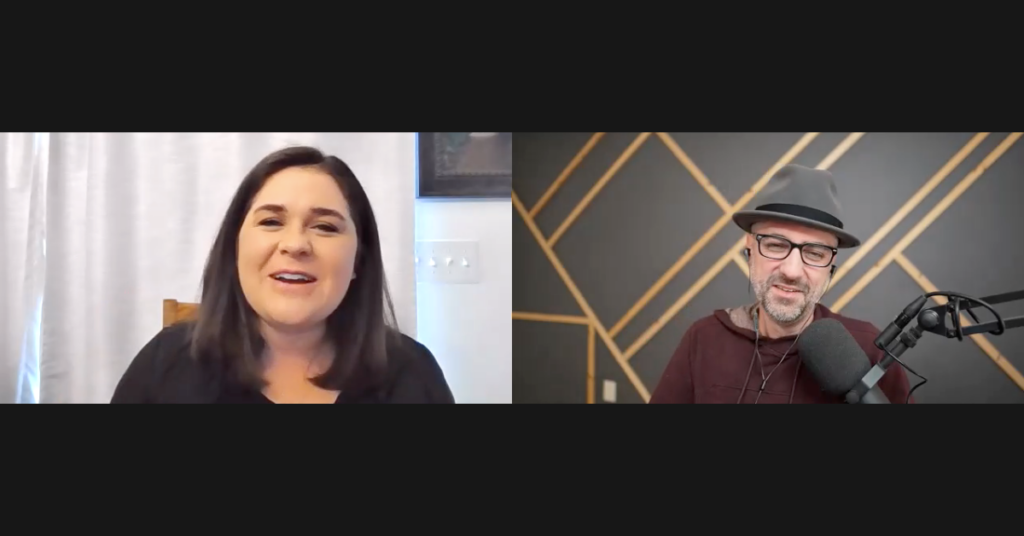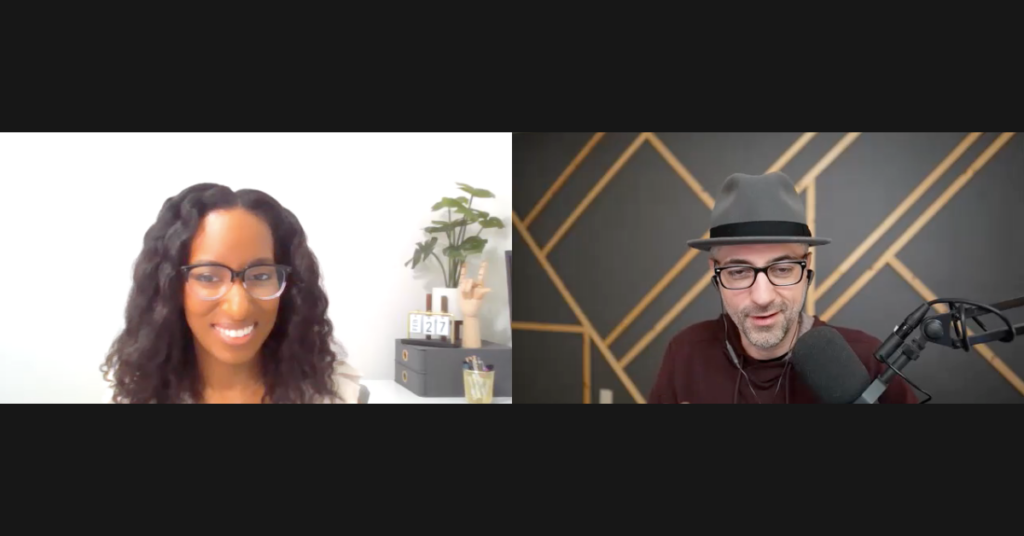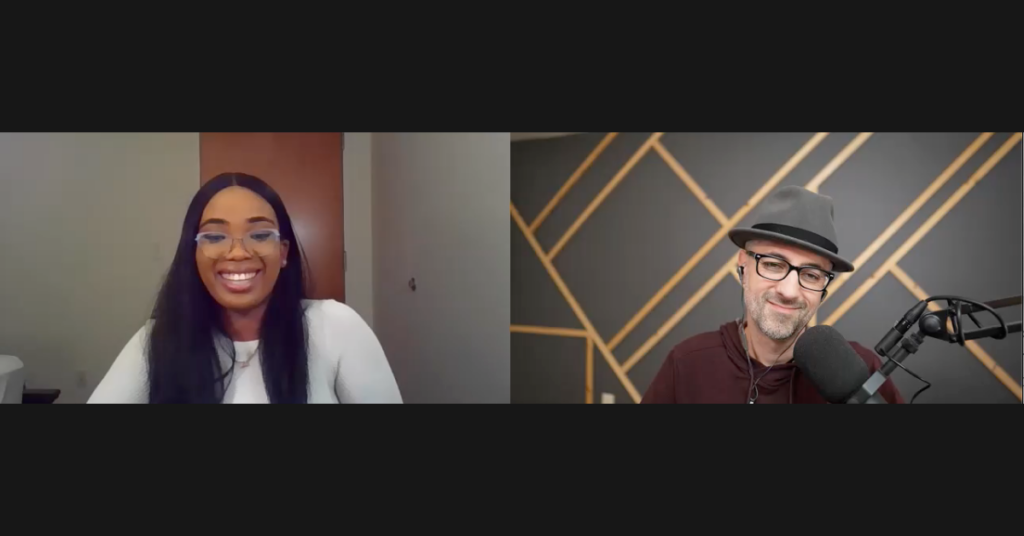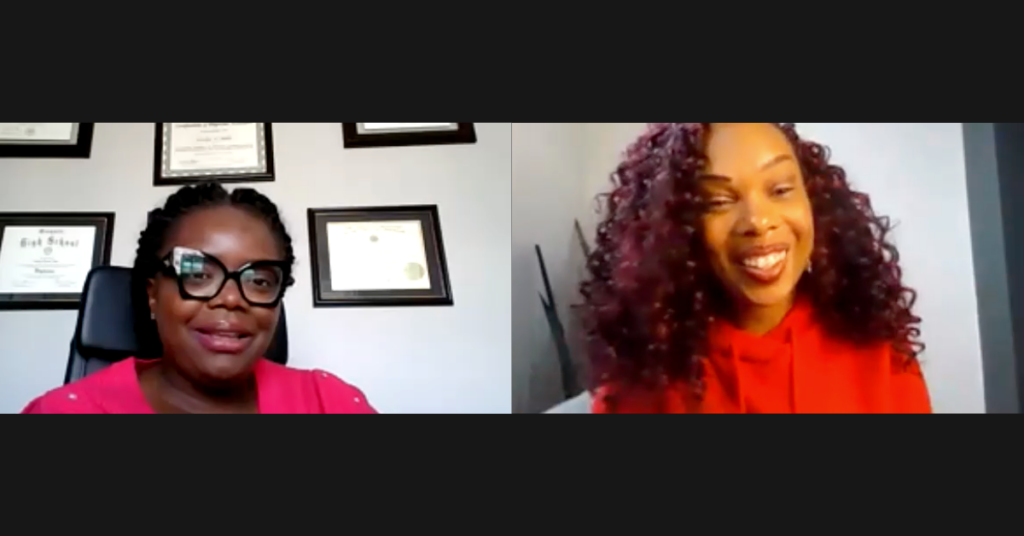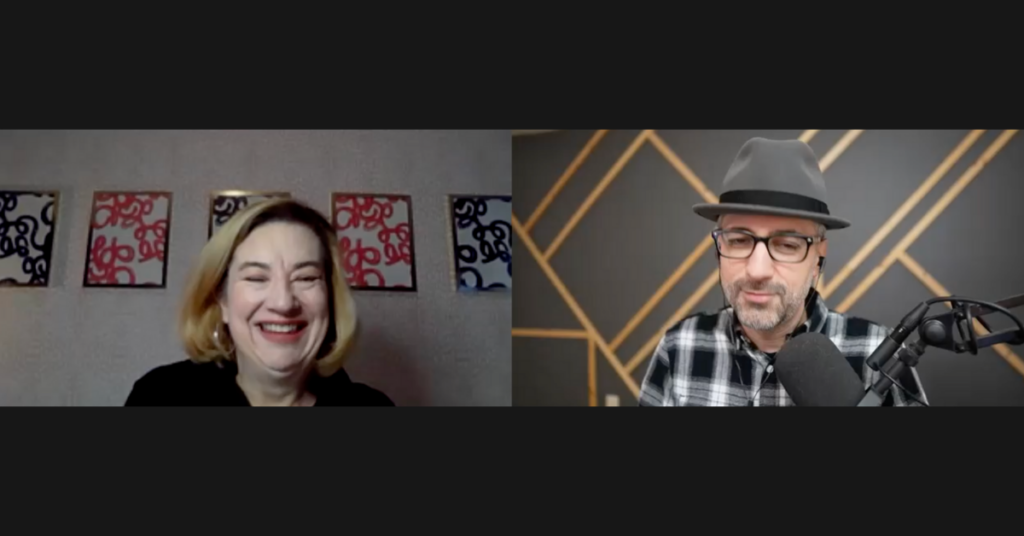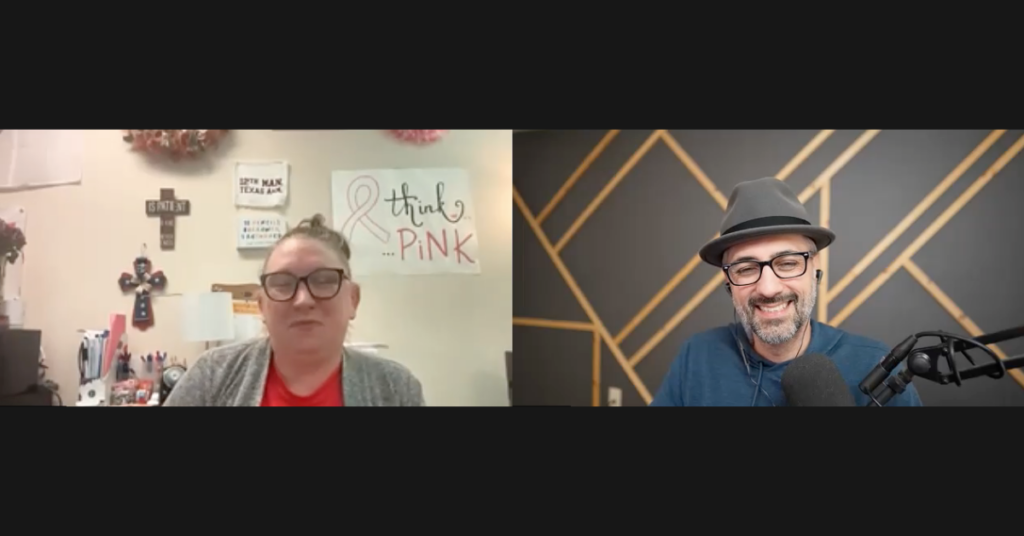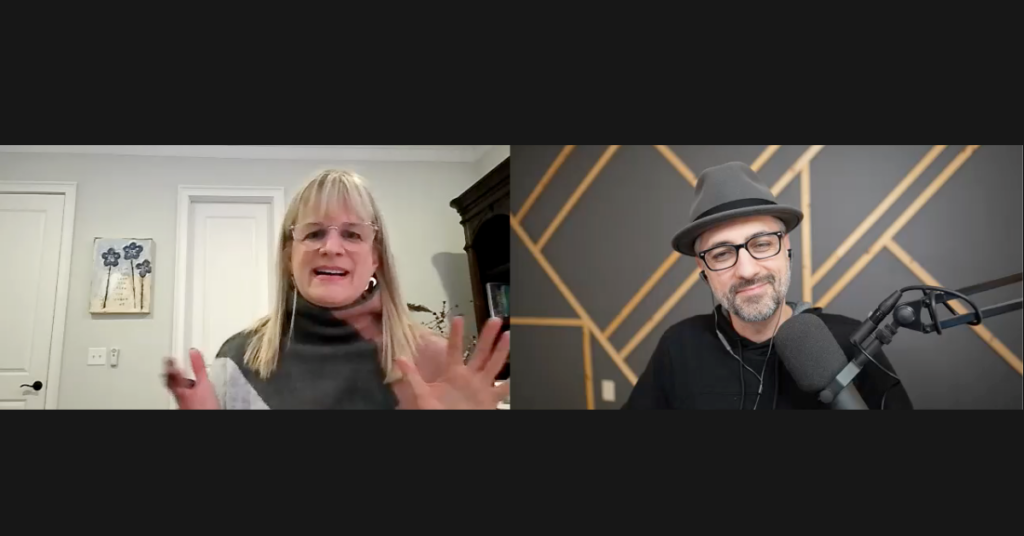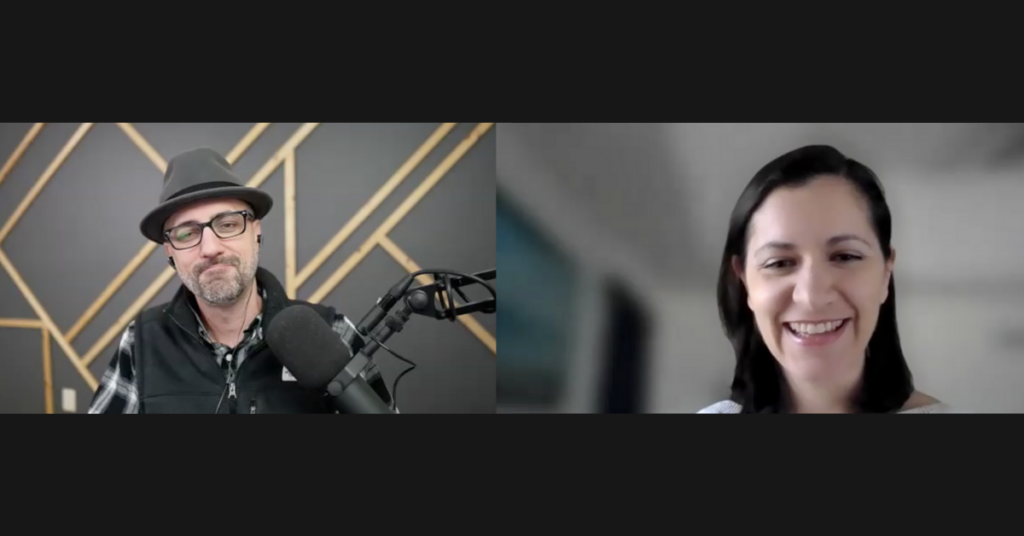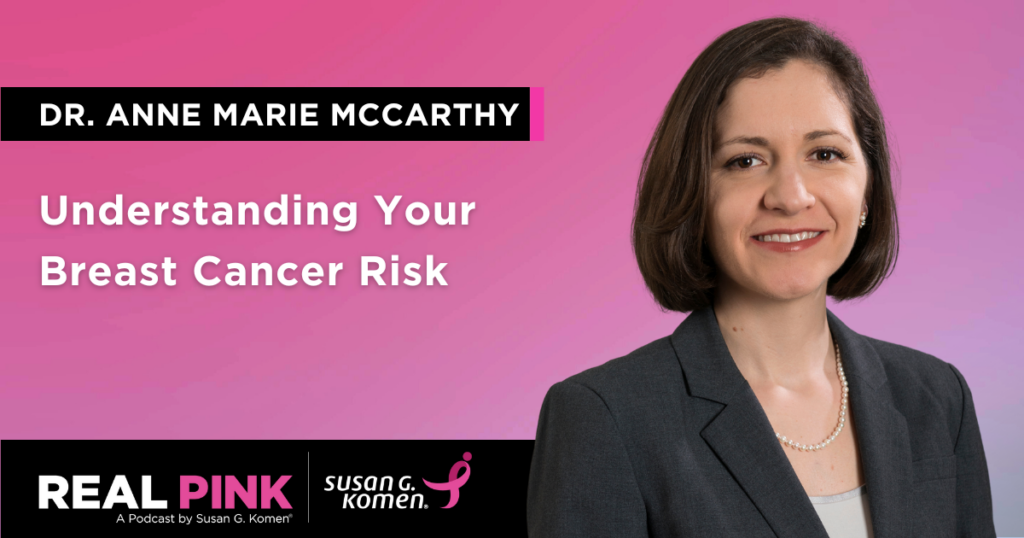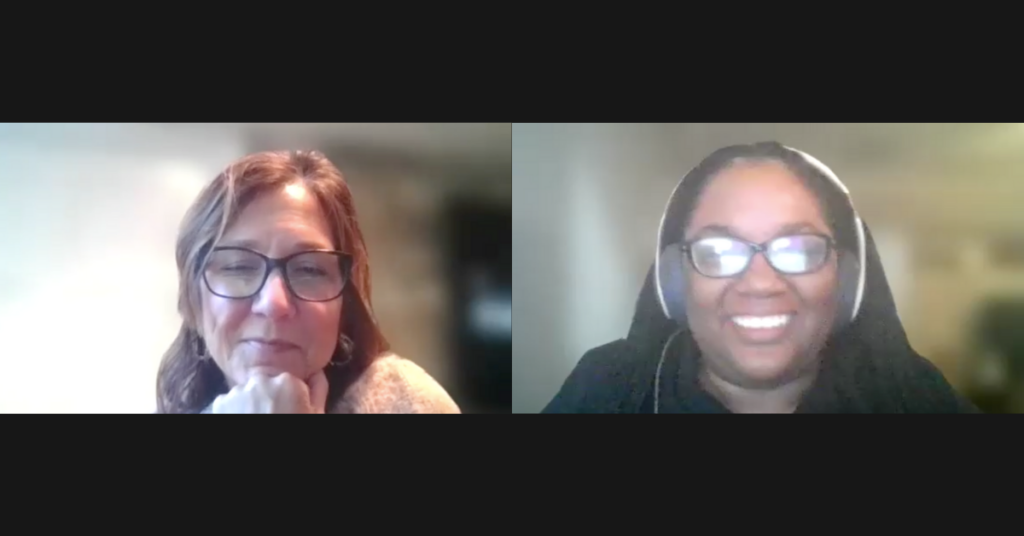Real Pink Podcast Episodes
Taking Charge of My Breast Cancer Risk
Learning about your breast cancer risk can empower you to make important breast care decisions to take charge of your health. If you are at higher risk of breast cancer, talk with your doctor about a screening plan that’s best for you. You may need to be screened earlier and more often than other women. If genetic test results show that you have an inherited gene mutation, you may also consider risk-lowering options, such as risk-lowering drugs, prophylactic surgeries, or clinical trials. Today’s guest has an extensive family history of both breast and ovarian cancers and tested positive for a BRCA1 mutation at a young age. Here today to tell us her story and how she’s worked with her doctors to create a screening schedule to keep a close eye on things while allowing her to fulfill her life dreams is Amy Hunter.
Read MoreHow Komen’s Racism & Bias Training Breaks Down Barriers
Komen’s free, virtual 10-week patient navigation training program provides specific training for patient navigators to ensure they can help Black patients overcome barriers to receiving high-quality care and treatment. The patient navigation training program takes a multifaceted approach to addressing inequities and barriers in the health care system, first and foremost by connecting patients to resources and support at every step of their breast care journey. We are excited to discuss how Komen trains patient navigators to be culturally responsive with Kelley Moultry, Komen’s Patient Navigation and Outreach Coordinator.
Read MoreMaking History: Increasing Representation in Cancer Research
As we celebrate Black History Month, it is our honor to be joined today by a woman truly making history and one that I know we will be seeing much more from in the future. Dr. Zainab Shonibare, recently graduated from her PhD in 2022, is a reproductive cancer researcher at Yale University and the first Black postdoctoral researcher in her lab. Her story underscores why representation matters and diversity in research is so important, and Dr. Shonibare is here today to share her story and tell us about the focus of her research.
Read MoreReal Talk: LOVE & Breast Cancer
Tomorrow is Valentine’s Day! But we’re kicking things off a day early with a conversation about LOVE and breast cancer. February 14th it isn’t red roses and champagne toasts for everyone, and today’s conversation about LOVE reminds us of that. Se’Nita Harris was diagnosed with aggressive, triple negative breast cancer at age 37, before she found love. LaToya Bolds-Johnson was diagnosed with stage 3C triple negative breast cancer at age 36. She is married with three young girls and struggling to love the skin she’s in after treatment for her breast cancer. Whether you’re in love or looking to find love breast cancer changes you – physically, emotionally, mentally, sexually. Ladies, thank you for being on today’s show to talk about your own personally struggles to love and be loved.
Read MoreI’ve Seen the Advancements in Genetic Testing Firsthand
Genetic testing gives people the chance to learn if they’re at a higher risk of breast cancer, if their family history of breast cancer, or if their breast cancer is due to an inherited gene mutation. In the past, breast cancer genetic testing only checked for inherited gene mutations in BRCA1 and BRCA2 genes. However, we’ve seen tremendous advancements and genetic discoveries in recent years, and it’s now common to be tested not only for BRCA 1 and 2 gene mutations, but also for mutations in multiple other high-risk genes. Today’s guest, Laurel Pointer, has felt the impact of these advancements first-hand in her family over the past two decades and is here to share her story with us. Laurel, welcome back to the show!
Read MoreBreast Cancer – A Family Affair
If you have a history of breast cancer in your family, learning about your risk can empower you to make important breast care decisions to take charge of your health. Today’s guest has a strong history of breast cancer in her family but was still not prepared to find a lump at the young age of 32. Here today to share her breast cancer story, how she learned to self-advocate, and the importance of educating her daughter about her breast cancer risk is Courtney Parker.
Read More20 Years Since Her Diagnosis, Julie is Stronger Than Ever
Julie Untener remembers the day like it was yesterday… 20 years ago, in January of 2003, Julie decided to do a breast exam. She’d been vigilant about getting her yearly mammograms, so on on this particular day, when she felt a marble on her left side, Julie knew something wasn’t quite right. She went to the doctor to get additional scans, and was eventually diagnosed with breast cancer. After undergoing six rounds of chemo, helping her sisters through their own mastectomies, and learning a lot of lessons along the way… Julie is here today to share her breast cancer story and what she’s learned over the last 20 years.
Read MoreFinding Empowerment After Breast Cancer
[00:00:00] Adam Walker: From Susan G. Komen, this is Real Pink, a podcast exploring real stories, struggles, and triumphs related to breast cancer. We’re taking the conversation from the doctor’s office to your living room. On this show, we often talk about how lives are changed after breast cancer, how a survivor’s life takes on…
Read MoreUnderstanding Your Breast Cancer Risk
Whether you’re concerned about your risk of breast cancer, have a history of breast cancer or other cancers in your family, or are curious about genetic testing, the first step is learning more about risk. Everyone is at risk of breast cancer, and some of us are at a higher risk than others. We are pleased to have Dr. Anne Marie McCarthy, an assistant professor of epidemiology from the University of Pennsylvania School of Medicine here today to help educate us about breast cancer risk so we can feel empowered to make important breast care decisions and take charge of our health. Dr. McCarthy’s research is focused on developing ways to identify women who are at a high risk for aggressive breast cancer. Dr. McCarthy, welcome to the show!
Read MoreIncreasing Health Care Workforce Diversity
Susan G. Komen’s approach to creating a health equity revolution through Stand for H.E.R. includes tailored interventions such as workforce development to increase diversity and improve cultural sensitivity of health care workers. We are thrilled to welcome Dr. Tracy Battaglia (Bit-tag-lea) from Boston University and Kyandra (Key-andra) Fox from Komen’s Patient Navigation training team to discuss this important topic.
Read More
